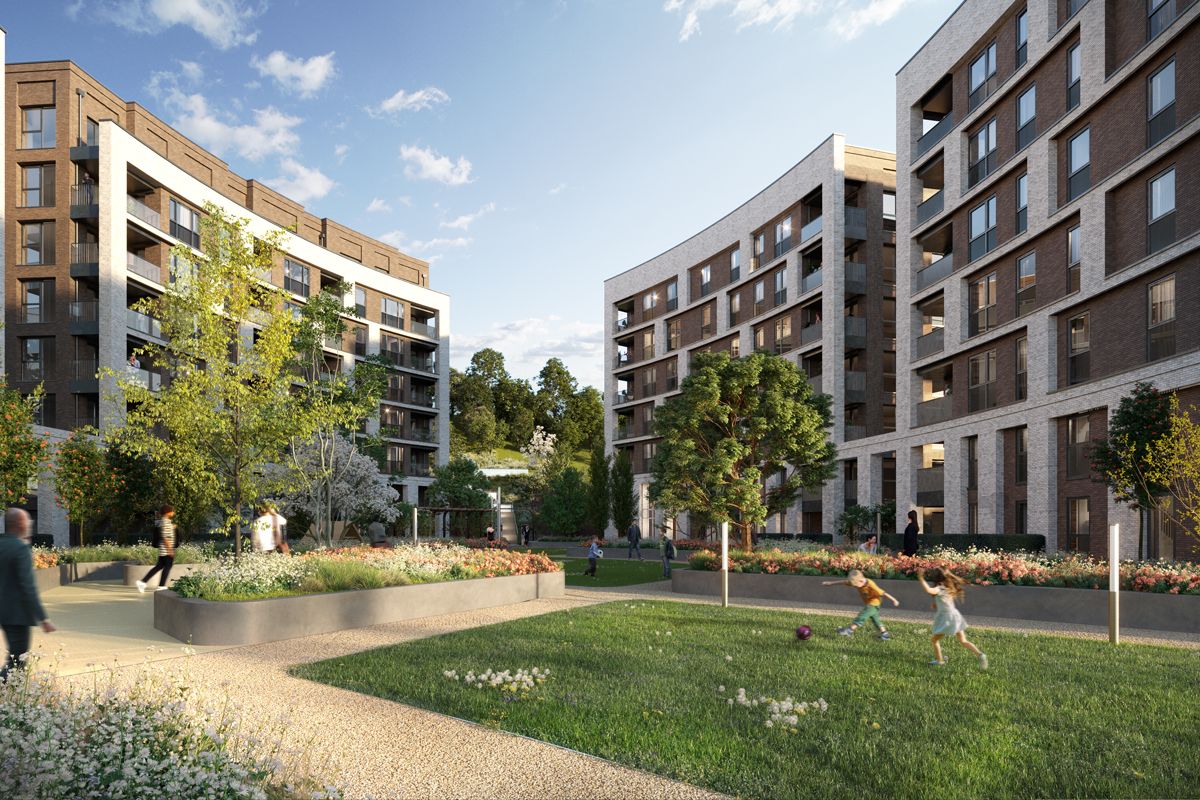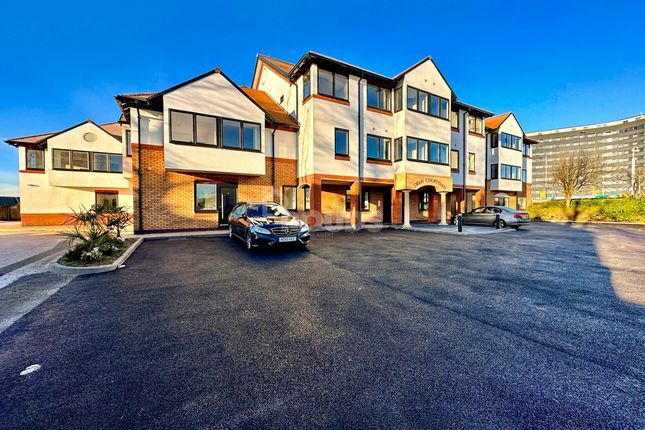

As a property owner in the UK, selling your home is likely one of the most significant financial transactions you’ll undertake. While the prospect of a successful sale and a hefty profit is appealing and makes property investment worth it, it’s essential to understand the various fees involved before putting your house on the market.
The total costs can amount to thousands of pounds, cutting across estate agent fees, conveyancing fees, and taxes. However, with the proper knowledge and plan, there are ways to minimise the impact on your bottom line.

This guide will walk you through what fees you pay when selling a house in the UK so you can budget properly and avoid surprises. With the correct information and realistic expectations about the process, selling your home does not have to be a costly endeavour.
Here’s a quick rundown of the essential fees to note.
|
Fees |
Priority |
Cost |
|
Estate Agent Fees |
Necessary if you use one |
From 0.9–3.6% of the sale price |
|
Conveyancing Solicitor Fees |
Necessary |
£475 to over £1,000 |
|
Surveyor Fees |
Necessary |
£325 to £1,425 |
|
Removal Fees |
Necessary if you have a furnished BTL |
Varies |
|
Early Repayment Mortgage Fees |
Necessary if you have an active mortgage |
From 1–5% of the remaining principal |
|
Capital Gains Tax |
Necessary if applicable |
18% or 28% |
|
Inheritance Tax |
Necessary if applicable |
40% |
Estate agents charge a percentage of the final selling price of your home as their fee for marketing and selling the property. Fees typically range from 0.9–3.6% of the sale price. The fee is negotiable, so check out different agencies for the best deal.
Estate agent fees are paid once your property has been sold. Understanding these costs upfront ensures you can make an informed decision about putting your property on the market.
If you’ve recently sold your property and are on the hunt for a new property investment, Baron & Cabot is here to assist. Our dedicated team is ready to support you in securing your next investment property. Reach out to us to learn more about the various profitable property investment options you can take advantage of.
When selling a property in the UK, conveyancing solicitor fees are incurred to handle the sale’s legal aspects.
The conveyancing fees will cover the following services:
The payment of solicitors’ fees typically occurs upon completion of the sale. These fees are usually settled from the sale proceeds before the remaining funds are transferred to you as the seller.
Conveyancing solicitor fees can range from £475 to over £1,000, depending on the value and complexity of the property. Additional disbursements for search fees and stamp duty may apply. It’s best to obtain quotes from multiple solicitors to compare their fees and services.
With the guidance of an experienced conveyancing solicitor, the legal aspects of selling a property in the UK can proceed smoothly. At Baron & Cabot, handling the legal aspects of your property investment is part of the service we render when you invest with us. Check out our most recent property developments to get started.
As a seller in Scotland, surveyor fees are one of the necessary costs you’ll incur to properly assess the value and condition of your property before putting it on the market. However, in England or Wales, the buyer pays the surveyor fees.

Surveyors are qualified professionals who thoroughly inspect the property to determine any defects or issues, providing an expert valuation based on the property’s attributes and current market conditions. Their detailed report gives buyers confidence in making an offer for your asking price.
A survey provides an objective analysis of the property’s state to inform buyers of any repairs or renovations that may be required, as well as an estimated rebuild cost in the event of destruction. As the seller, a survey also protects you by ensuring you’ve disclosed all material facts about the property’s condition to avoid legal issues after the sale. For these reasons, a survey is considered prudent for most property transactions in the UK.
Fees for a survey will depend on the type of survey you choose, as well as the property value, location and any additional services.
The three most common types are:
For a typical 3-bedroom house valued at £500,000 in London, you can expect to pay between £325 to £1,425 for a HomeBuyer or Full Building survey. The specific surveyor’s fees will also depend on their rates. It’s best to obtain multiple quotes from surveyors in your local area to compare.
In summary, while survey fees may seem unnecessary, a professional survey provides essential information to facilitate a smooth property transaction, giving buyers and sellers peace of mind. However, you don’t need to worry about this when you purchase your property with Baron & Cabot.
When selling a furnished buy-to-let (BTL) property, it’s important to consider removal fees as part of the selling process and what fees you pay when selling a house. This may involve hiring a moving company to transport the furnishings out of the property, allowing the new owners to re-furnish as they please. However, this doesn’t apply to unfurnished BTLs.
In addition to removal fees, it’s essential to consider any other potential expenses, such as packing materials, storage units, or vehicle rentals. It’s advisable to obtain multiple quotes from reputable moving companies in the local area to ensure a fair price. You may also explore cost-saving options such as scheduling the move during off-peak hours or days of the week.
When selling your property, your mortgage lender may charge you early repayment charges (ERCs) if you pay off your mortgage early. ERCs are fees levied by the lender to compensate them for the interest they’ll lose due to you repaying the loan ahead of schedule, and it’s among the potential hidden fees when selling a house.
The specific terms of your ERCs depend on the details of your mortgage. Typically, ERCs are calculated as a percentage of the outstanding mortgage balance at the time of repayment. The fees vary but often range from 1–5% of the remaining principal. The ERCs you pay will decrease over the lifetime of your mortgage.

For example, if you have a 5-year fixed rate mortgage with 3% ERCs in year 1, 2% in year 2 and 1% in years 3–5, paying it off after two years would incur ERCs of 2% of the remaining balance. After three years, ERCs drop to 1%, and after five years, there are usually no ERCs at all. Some mortgages have flat ERCs for the complete initial fixed or discounted period — you must check your specific mortgage terms to determine the applicable ERCs.
In some circumstances, you may be able to avoid or reduce ERCs. If interest rates have dropped significantly since you took out your mortgage, you may be able to remortgage to a better deal with the same or different lender with lower or no ERCs. You can also ask your current lender if they’ll waive or reduce the charges, especially if you’ve been a loyal customer. While there’s no guarantee, it doesn’t hurt to ask.
ERCs can come as an unwelcome surprise when selling, so make sure you understand the ERC terms of your mortgage before putting your property on the market. Forewarned is forearmed, allowing you to budget appropriately and avoid nasty shocks. Carefully checking the details of your mortgage agreement can save you thousands of pounds in unnecessary fees.
When selling a residential property in the UK, you may have to pay Capital Gains Tax (CGT) on the profit from the sale. CGT applies if you sell the property for more than you paid for it, and is one of the hidden fees when selling a house. However, you can claim allowances and exemptions to reduce or reduce the tax.
CGT is payable on the ‘gain’ you make when selling the property — the difference between the purchase and selling prices. If you’ve lived in the property as your main home for the entire time you owned it, you don’t have to pay CGT. However, if you rented the property or used it as a holiday home during the ownership period, CGT may apply on all or part of the gain.
Each tax year, you have an Annual Exempt Amount (AEA)—currently £6000 for individuals and £3000 for trustees—that can be deducted from your total taxable gains before CGT is calculated. No CGT will be due if the gain from selling your property is less than the AEA. Any unused allowance can’t be carried over to the next tax year.
CGT is charged at either 18% or 28% on residential property gains, depending on your income tax band. Your total taxable gain for the year is calculated by deducting your AEA and any other allowable deductions or reliefs from the total gain on the sale of your assets. The remaining gain is added to your taxable income to determine which CGT rate band it falls into.
You must report the details of your property sale(s) by 31 December of the tax year and pay any CGT due on the gain by January 31 of the following year. This is done by submitting a Property Disposal form as part of your Self Assessment tax return; if you don’t submit a tax return, you must register for Self Assessment to report the disposal. The CGT can be paid alongside your income tax payment for the year of sale.

While CGT may be payable on the profit from selling an investment property in the UK, allowances and exemptions are available to help reduce or eliminate your liability. Careful tax planning and understanding your obligations can help minimise the impact. When you purchase property from Baron & Cabot, we ensure you receive expert legal and financial advice on how CGT rates affect you when it’s time to sell your property — contact us today to get started.
While the buyer pays stamp duty fees, not the seller, it’s still crucial to understand how it works and affects your selling price.
If the property sells for over £250,000, the buyer must pay Stamp Duty Land Tax (SDLT), regardless of whether they’re buying as a non-resident or resident. As the seller, this tax is not among what fees you pay when selling a house in the UK, but a higher asking price means the buyer will have to take into account higher Stamp Duty costs in their budget. Consider this when setting your asking price.
The rates and thresholds for stamp duty can change each year with the Budget.
As of August 2023, here are the current stamp duty rates:
For example, for a house selling for £950,000, the stamp duty would be £36,250. That is, 0% for the first 250,000, leaving 700,000 taxable. Then 5% on the next £675,000, which is £33,750. And 10% on the last 25,000, which is £2,500.
These rates apply to freehold properties, leasehold properties, and shares in property companies. The thresholds are for the portion of the property price that falls within each band.
Some property transactions are exempt from stamp duty, such as the following:
Again, when selling a property, stamp duty is paid by the buyer, not the seller. However, the fees can still impact the total cost of the transaction and influence the final selling price, so sellers should be aware of the current rates and thresholds. The conveyancing solicitor will handle the payment of stamp duty on behalf of the buyer.
Be aware of hidden fees when selling a house beyond the fundamental solicitor, estate agent and surveyor costs. Some of these extra charges are unavoidable, but knowing them will help you budget properly and avoid unwanted surprises.
Here is what you should expect:
If you’re selling an inherited property, you may need to pay Inheritance Tax. The current threshold is £325,000, with tax charged at 40% on the amount above this threshold. Any tax owed must be paid within six months of death to avoid penalty fees.
The costs of moving out of a property often come as an unpleasant surprise. Make sure to budget for removal services, storage units, time off work, and any repairs or freshening needed at your new home. The average move costs between £660 and £1,320 for a typical 3–4 bedroom house, so start saving well in advance.

In summary, selling a UK property comes with various taxes, fees, and other costs that can significantly impact your bottom line. Do your research and budget ahead of time to avoid unwanted financial stress during what is already an involved process. And with the aid of property investment experts like Baron & Cabot, you can always secure your next investment property in top real estate areas poised for growth — contact us now to learn more.
The average fees for selling a house with a solicitor in the UK are around £475 to over £1,000, including disbursements and potential extra costs. This figure covers the solicitor’s legal fee and conveyancing disbursements for a freehold property.
It’s important to note that solicitors’ fees are typically paid upon completion of the property sale. This means the funds are transferred once the transaction is finalised and the solicitor’s fees are settled.
While the average cost above provides a general idea, it’s worth mentioning that solicitors’ fees can vary depending on factors such as the sale’s complexity, the property’s value, and the solicitor or firm you choose to work with.
To get a more accurate estimate specific to your situation, it’s advisable to consult with a solicitor directly. They can provide a detailed breakdown of their fees and any additional costs that may apply.
No, stamp duty isn’t among those fees you pay when selling a house in the UK. The buyer typically pays stamp duty as a part of the purchase process, not the seller. However, it’s important to note that if you’re selling a property and have made a significant profit on its value, you may be subject to capital gains tax (CGT). This tax is imposed on the gains from selling an asset, such as a property, and is separate from stamp duty.
Yes, when you sell a house in the UK, informing His Majesty’s Revenue and Customs (HMRC) about the sale is generally necessary. This ensures you fulfil your tax obligations, particularly regarding capital gains tax (CGT).
Capital gains tax is a tax on the profit you make when selling an asset, such as a property, that has increased in value since you acquired it. The amount of CGT you may need depends on various factors, including your overall income, the time you owned the property, and any applicable tax exemptions or reliefs.
You must typically complete a self-assessment tax return to report the sale and potential capital gains tax liability. This allows you to declare the gain from the property sale and calculate any tax owed. It’s important to note that there are specific deadlines for filing your tax return and paying any tax due, so it’s advisable to consult with a tax professional or accountant to ensure compliance with HMRC requirements.
Yes, when selling a house in the UK, it’s common for the seller to be responsible for specific Land Registry fees. These fees are associated with updating the official record of ownership for the property.
Sellers typically encounter the fee for the official copy of the register. This fee is paid to obtain an official copy of the Land Registry title register, which confirms ownership and other important details about the property. The cost of the official copy of the register is currently £3 when lodged electronically and £7 by post.
Additionally, there may be other optional fees that sellers can choose to pay for additional services provided by the Land Registry, such as obtaining official copies of documents related to the property or requesting a search of the index map. These fees can vary depending on the specific services requested.
It’s important to note that while the seller is generally responsible for these Land Registry fees, the buyer may also incur fees related to registering their property ownership.
To get a complete understanding of the Land Registry fees associated with selling a house, it’s advisable to consult with a conveyancer or solicitor who can provide specific guidance based on your situation.
As you’ve discovered, selling a property in the UK comes with various charges that can significantly impact your net proceeds. Ensure you understand all the potential costs before putting your house on the market to avoid unwanted surprises. While estate agent, conveyancing, and surveyor fees are typically the most significant expenses, the budget for ERCs, marketing, and removal costs can add up quickly.
Nonetheless, with thorough planning and shopping for the best deals, you can minimise what fees you pay when selling a house in the UK. If done right, the entire process doesn’t have to be as costly as you might expect. And with the knowledge you’ve gained from this guide, you’re now well-equipped to get the best value when selling your property in the UK.
To take the hassle out of buying your investment property, talk to Baron & Cabot today!
Disclaimer: Any information provided by Baron & Cabot does not constitute financial advice and is for educational purposes only.